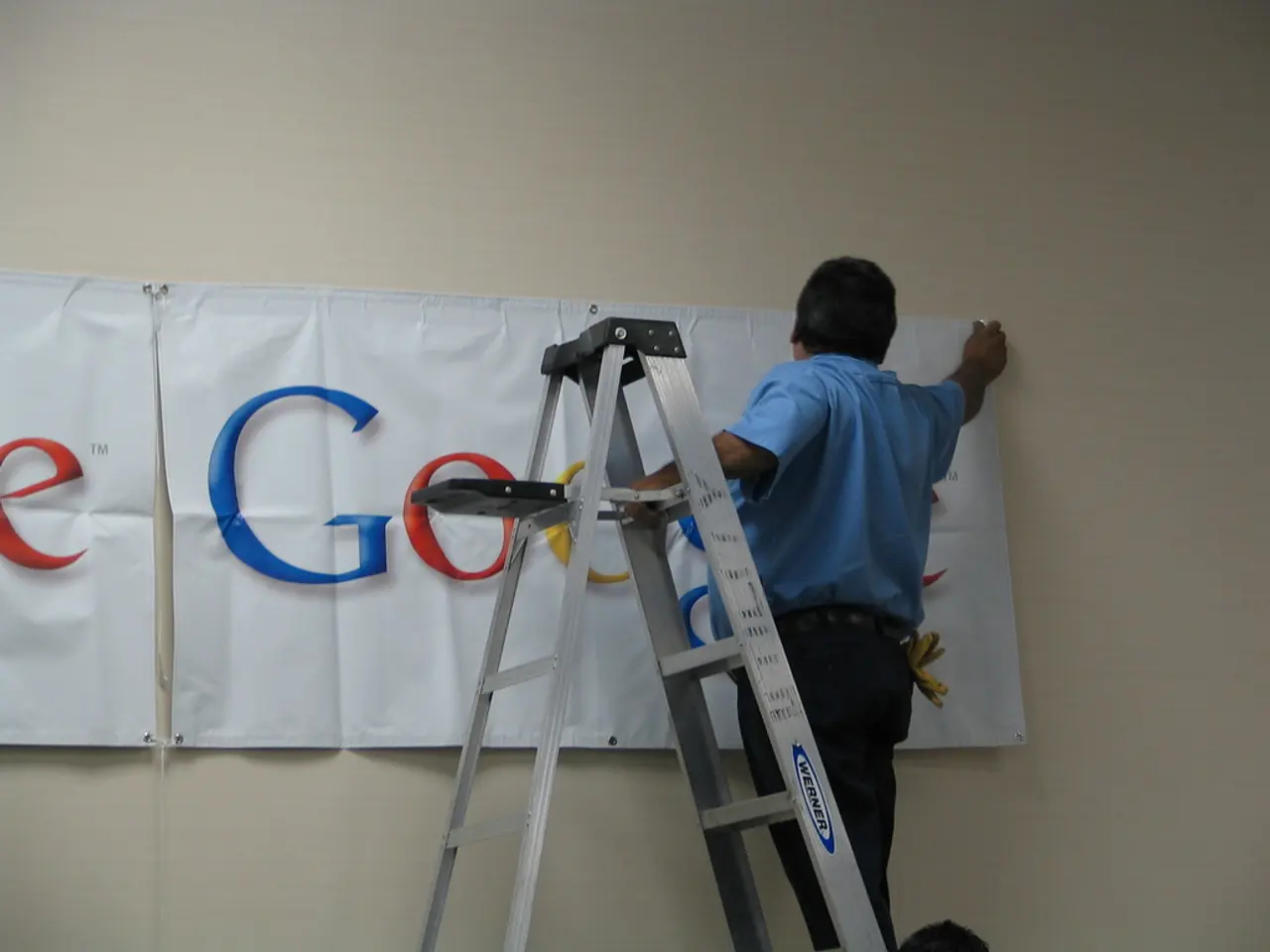Decline in Traffic Prompts Discussion on Search Ecosystem Structured by Google AI
=====================================================================================
In the digital publishing industry, the conversation surrounding Google AI Overviews and Traffic Decline is one of the most contentious debates. This debate encapsulates a broader tension between innovation and sustainability in the digital economy.
AI Overviews, Google's automated summaries of content from multiple sources, have been a point of contention due to their potential impact on click-through rates and referral traffic. SEO analytics firms such as Ahrefs and SimilarWeb have recorded measurable dips in click-through rates across major publishers.
Pew Research's March 2025 survey revealed that when an AI summary is present, only 8% of users click on any result, compared to 15% without the summary. Similarly, multiple independent studies, including Pew Research and Ahrefs, report reduced click-through rates and increased "zero-click" searches since AI Overviews launched.
One of the key pieces of evidence is a 54.6% decrease in organic click-through rates (CTR) for queries featuring AI Overviews from 1.41% to 0.64% year-over-year, according to a large keyword study published in early 2025. Another piece of evidence is a 25% drop in median Google Search referral traffic across publishers surveyed in May-June 2025, with losses outpacing gains two-to-one, directly attributed by many publishers to Google AI Overviews.
Google, however, disputes that AI Overviews are killing traffic at an aggregate level, claiming overall organic traffic volume remains stable with traffic shifts among sites. They argue that the quality of those clicks has actually improved.
Potential Long-term Impacts on Revenue for Publishers
The reduced referral traffic means fewer visitors landing on publisher sites, leading to declines in ad revenue, subscription conversions, and ecommerce sales tied to site visits. The "great decoupling" of user queries from publisher websites as AI aggregates and answers questions directly may force publishers to rethink revenue models and strategies around content monetization.
Traditional digital marketing attribution methods may become less reliable as AI intermediaries mediate information discovery, potentially complicating how publishers measure and optimize their revenue streams. The persistence of declining clicks/intents could compel publishers to invest more in brand loyalty, direct engagement, or alternative content distribution channels beyond search.
In summary, multiple independent data sources firmly indicate that Google AI Overviews have contributed to significant declines in click-through rates and referral traffic for many publishers, raising concerns about the long-term financial sustainability of traffic-dependent publisher business models. While Google argues total search traffic remains stable, the shift towards zero-click AI summaries represents a fundamental change in user behavior with clear negative impacts on many publishers’ revenues since mid-2024.
Regulatory scrutiny of AI in search is likely to intensify, with governments examining whether AI-driven search features unfairly leverage content without proper attribution or compensation. Google continues to refine its AI Overview algorithms, hinting at future changes to better highlight source attribution and improve transparency.
The coming years will likely see both competitive adaptation and regulatory intervention in the relationship between AI and the open web. Smaller publishers and niche websites appear more vulnerable to the impacts of Google AI Overviews Traffic Decline, and publishers are experimenting with strategies to adapt, such as optimizing for AI Overview inclusion and diversifying traffic sources.
References: 1. Google (2025). Google's response to AI Overviews and Traffic Decline concerns. [Online]. Available: https://google.com/ai-overviews-response 2. Ahrefs (2025). The impact of AI Overviews on click-through rates and search traffic. [Online]. Available: https://ahrefs.com/ai-overviews-impact 3. SimilarWeb (2025). The rise of zero-click searches and its impact on publisher traffic. [Online]. Available: https://similarweb.com/zero-click-searches 4. Pew Research Center (2025). The effect of AI Overviews on click-through rates and user behavior. [Online]. Available: https://www.pewresearch.org/ai-overviews-effect 5. Digital Content Next (2025). The financial impact of Google AI Overviews on publishers. [Online]. Available: https://digitalcontentnext.org/ai-overviews-impact
- The decline in referral traffic due to Google AI Overviews, as proven by numerous studies, could lead to a significant decrease in ad revenue, subscription conversions, and ecommerce sales for publishers, as fewer visitors land on their sites.
- As a potential long-term impact, the shift towards zero-click AI summaries may force publishers to rethink their revenue models and strategies for content monetization, as traditional digital marketing attribution methods become less reliable in the presence of AI intermediaries.




